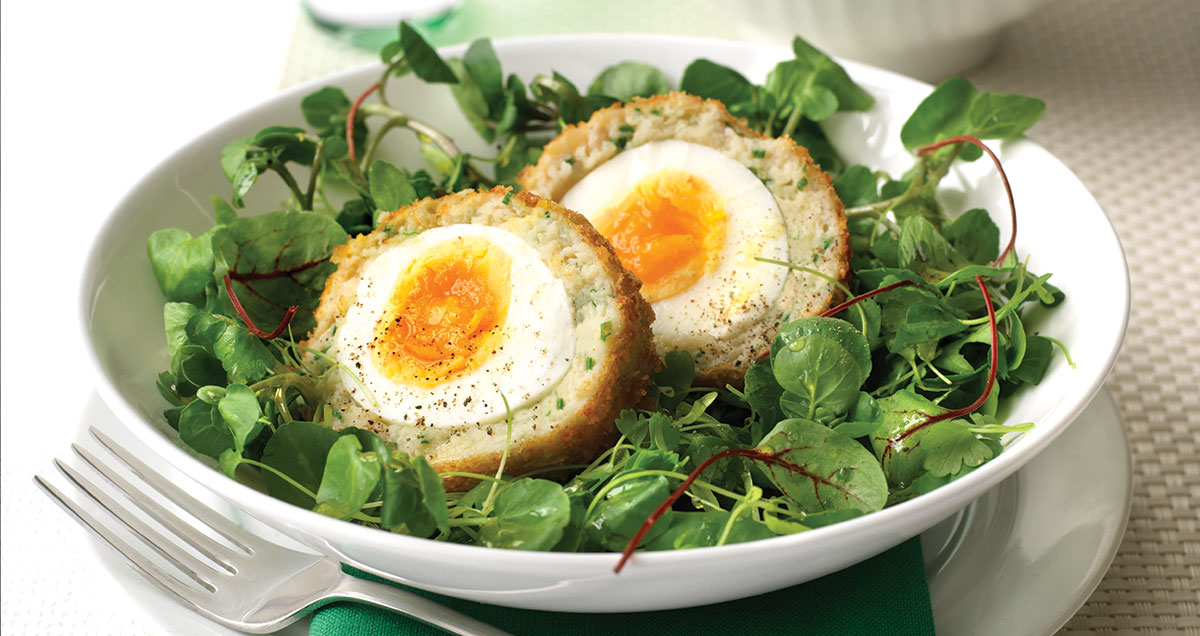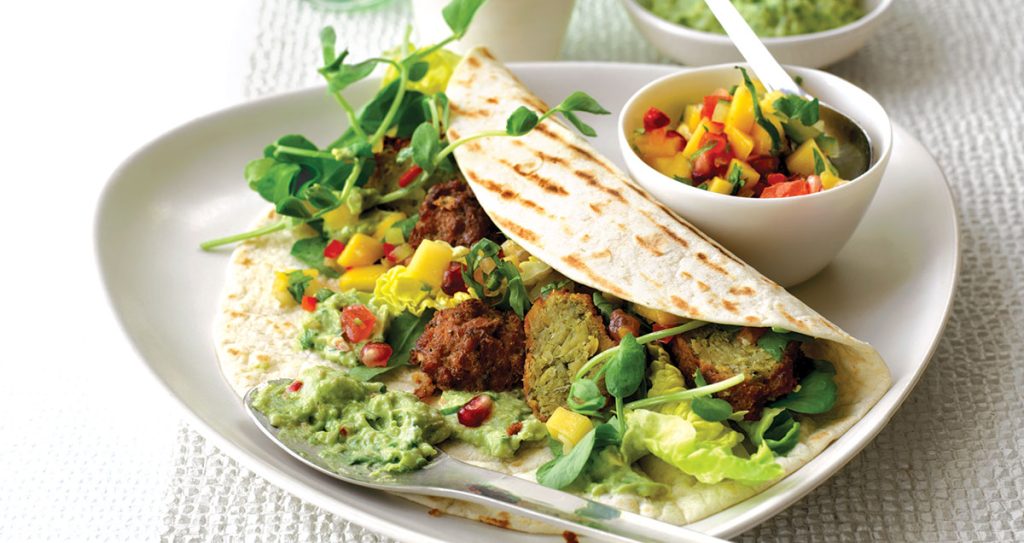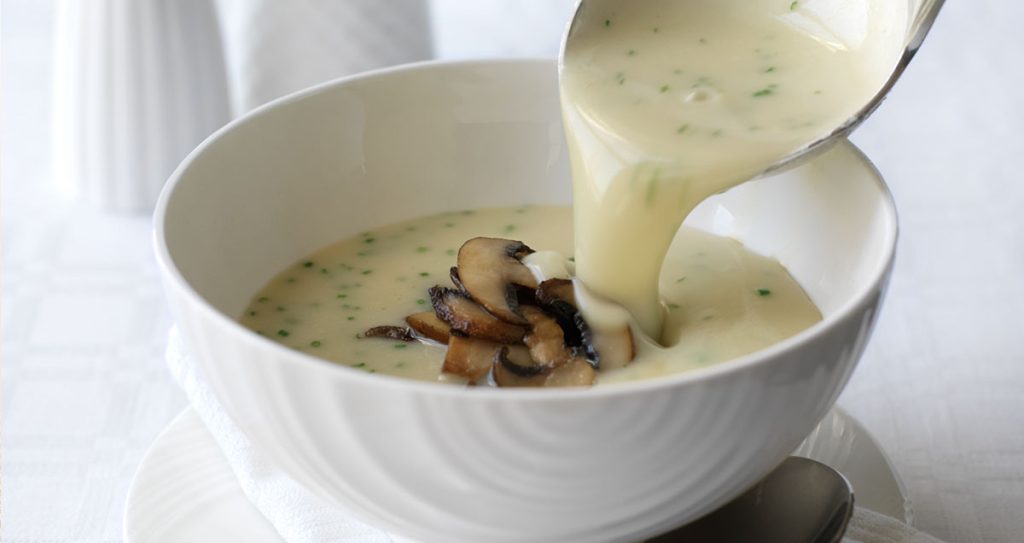, Step by step
Smoked haddock scotch egg

The beloved scotch egg with a twist, using a mixture of fresh and smoked haddock instead of the traditional sausage.
Method
-
Step 1
Lay the haddock fillets on a tray and scatter over the salt. Leave for one hour, then rinse the fillets well under cold water.
-
Step 2
While the fillets sit, bring a pan of water to the boil and carefully drop in the eggs with a slotted spoon and simmer for five minutes. Then remove the eggs from the boiling water and refresh them under cold running water for about five minutes so that they don’t continue cooking.
-
Step 3
Coarsely blend the haddock fillets and the smoked haddock in a food processor and season with white pepper. Divide the fish mixture into eight balls and flatten them on a lightly-floured surface. Carefully peel the eggs, ensuring all the shell is removed.
-
Step 4
Mould the fish mixture around the eggs, making sure they are well sealed.
-
Step 5
Prepare three dishes: one with the flour, one with the beaten egg and the third with the breadcrumbs. Pass the eggs through the flour, shaking off any excess, then the beaten egg and finally the breadcrumbs, re-moulding them once crumbed.
-
Step 6
Preheat the oil to 150°C in a deep fat fryer. Carefully place the eggs into the oil and cook them for 4-5 minutes until golden.
-
Step 7
Serve warm with a watercress salad and a tartare sauce made with crème fraîche (instead of mayonnaise).
Nutrition
Traditionally a Scotch egg consists of a hard-boiled egg wrapped in sausage meat, breadcrumbed and deep-fried. The origin of this dish is uncertain, but allegedly may have first been made by the London store Fortnum & Mason in the 18th century when they were sold as a ‘travellers’ snack’.
Fish-based Scotch eggs appear to originate from the Northeast coast of England—from Whitby and Scarborough—in the 19th century. The mixture of haddock and smoked haddock provides a slightly healthier coating for these Scotch eggs than the traditional sausage meat.
When you are buying eggs, look for British eggs carrying the Lion mark. These eggs, whether they are free range or not, will have been laid by hens vaccinated against salmonella and are safe to eat without being fully cooked.
The Lion scheme was introduced by the British egg industry in 1998 following the salmonella scare of the late 1980s and about 90% of all British eggs are produced under the scheme. Imported eggs, which account for about 13% of eggs in the UK, may not be free from salmonella.
Eggs are a great source of high-quality protein and important vitamins, such as vitamin D and B12, as well as minerals such as selenium.


